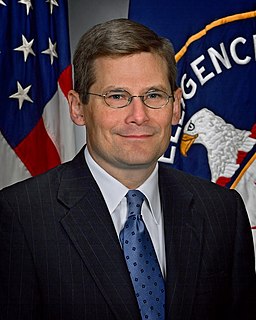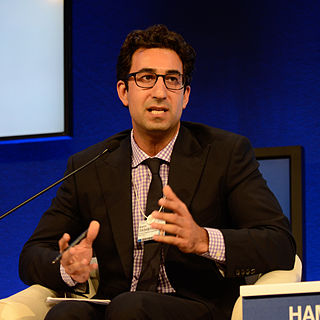A Quote by Michael McCaul
I'm over here with the French counterterrorism experts talking about the 'Charlie Hebdo' case, how we can stop foreign fighters from coming out of Iraq and Syria to Europe, but then we have this phenomenon in the United States where they can be activated by the Internet, and, really, terrorism has gone viral.
Related Quotes
Our process inside the United States government has gotten much better at making sure we touch all possible source of information about a refugee. The interview process has gotten more robust, so we've gotten our act together in that respect. The challenge remains, especially with respect to folks coming from Syria, we're unlikely to have anything in our holdings. That is, with people coming from Iraq, the United States government was there for a very long period of time. We had biometrics, we had source information. We're unlikely to have that kind of picture about someone coming from Syria.
One great lesson from history we need to keep on re-learning. It is that sometimes your adversaries tell you exactly what they're going to do. How many times did [Osama] bin Laden say prior to 9/11 that he was coming after the U.S.? ISIS made clear that when they established their caliphate in Iraq and Syria, they were coming after the United States too.
Currently, the United States has troops in dozens of countries and is actively fighting in Iraq, Syria, Libya, and Yemen (with the occasional drone strike in Pakistan). In addition, the United States is pledged to defend 28 countries in NATO. It is unwise to expand the monetary and military obligations of the United States given the burden of our $20 trillion debt.
The Iranian government prevented journalists from marching in solidarity with the victims of the Charlie Hebdo massacre yet it organized flag-burning protests against the French embassy, that hasn't ingratiated them to a French nuclear negotiating team that is deeply cynical about the nature of the Iranian regime.
In my fight against terrorism, to me, the biggest terrorist is Obama in the United States of America. For me, I'm trying to fight the terrorism that's actually causing the other forms of terrorism. The root cause of the terrorism is the stuff that you as a government allow to happen and the foreign policies that we have in place in different countries that inspire people to become terrorists. And it's easy for us because it's really just some oil, which we can really get on our own.
It was not the United States who invaded Kuwait; it was Iraq. It was not the United States that went to war with Iran; it was Iraq. It was not the United States that fired chemical weapons at Iran; it was Iraq. And it was not the United States that murdered innocent Iraqi citizens with chemical weapons; it was Iraq.






























